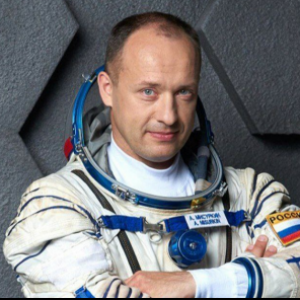Alexander Misurkin, Hero of Russia, pilot-cosmonaut, 116th cosmonaut of the country and 531st cosmonaut of the world, told students about how to get his ticket to space this week.
As part of the 18th Salt of the Earth International Film Festival, the documentary “Space is Calling” was shown at the university. The film was directed by Anastasia Yemelyanova. The main character is Alexander Misurkin, and on the screen is his journey into orbit, where he spent 346 days, made four spacewalks with a total duration of 28 hours and 13 minutes. The film is dedicated to achieving Alexander Alexandrovich's cherished goal. And his story is not only about astronautics, but also about the path of everyone who goes to a dream through doubts, trials and moments of joy.
Before the screening of the film, the students talked with Alexander Alexandrovich and asked their questions. The cosmonaut's answers became valuable advice for the younger generation and confirmed that the path to the stars, like any other path to a dream, is open to those who are willing to work, believe and strive.
Answering the students' questions – all of them were asked by first-year students of the Institute of Aerospace Engineering – Alexander Misurkin shared his personal secrets of success.
First of all, you need to do what you love. And here it is important to hear yourself. “I realized at the age of 14 that I wanted to be an astronaut. There was no doubt, but I turned to the teacher for advice. And she helped me make a plan: go to flight school!”
Secondly, find your strong side and develop it. “You achieve a lot in life if you follow your strongest line,” the cosmonaut is sure. “How you consciously draw an image of the future, find out your strengths, and choose an educational track. And even if you realize at some point that you made the wrong choice, be sure that you can always change direction and find yourself.” As an example, Alexander Misurkin cited the life story of Vladimir Pozner, who graduated from the Biology department of Moscow State University and made his career as a journalist.
Thirdly, if you prepare systematically, then everything is real. Answering the question, Alexander Misurkin noted that cosmonaut training is very serious, and the knowledge requirements are getting tougher every year. But there's still nothing too complicated. “Among the qualities of an astronaut, I would name the ability to work in a team, under stressful conditions, as well as the ability to constantly learn and have a sense of humor,” the cosmonaut added.
Fourth, enjoy the preparation process and don’t worry about the result. “I need to feel challenged, to overcome difficulties. And space training is all about overcoming challenges. So, for example, you go through desert survival training, lose five kilograms in two days, and then you look back and realize: it wasn't anything out of the ordinary. You did it! So you approach each stage of training as a new challenge, focus on the task at hand, and work with the data you have,” he added.
Commentary
Vladimir Bogatyrev, Rector of Samara University:
– I believe that such meetings and film screenings are essential: they allow students to hear from outstanding people, become familiar with their life principles, understand their thought processes and experiences, and set goals for themselves. And for future engineers – I note that the Institute of Aerospace Engineering now has more than 2,500 students – it is useful to learn the nuances of the operation of aerospace engineering from people whose lives depend on the accurate operation of the equipment. After all, when Alexey Arkhipovich Leonov personally tells you about the first spacewalk – and he came to our university – such an eyewitness account is so emotionally saturated that it sticks in your memory.
Photo by: Viktoria Staroselskaya
 RU
RU  EN
EN  CN
CN  ES
ES 




